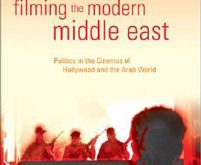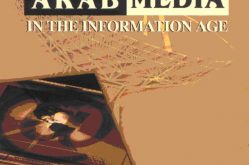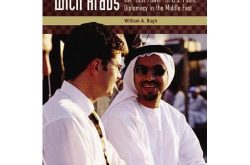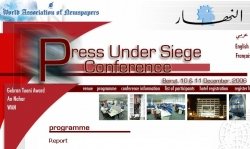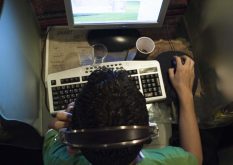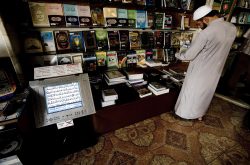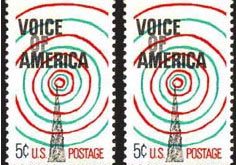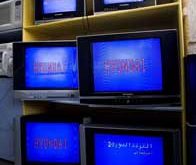Lina Khatib laments the fact that “the number of studies on the way the Middle East represents itself cinematically � is infinitesimal.” Yet because Khatib does not pursue this much-needed study herself in a field where there are already a number of survey-type works, she misses a valuable opportunity to engage with the Arab cinema on a deeper level of analysis, argues Refqa Abu-Remaileh.
Read More »Arab World
BOOK REVIEW | Arab Media in the Information Age
The methodological shortcomings and scarce editing make this book a frustrating read. The lessons to be taken from this book regard the challenges facing Arab media studies as much as those facing Arab media, argues Contributing Editor Sune Haugbolle.
Read More »BOOK REVIEW | American Encounters with Arabs: The “Soft Power” of U.S. Public Diplomacy in the Middle East
Readers of American Encounters will be heartened by the reminder that — regardless of the administration or specific policy — there remain elements in the U.S. foreign policy establishment dedicated to engaging with Arab audiences and keeping avenues of communication open, argues Will Ward.
Read More »Press Under Siege Conference Raises a Cry for a Freer Middle East Press
It was not clear whether the ultimate point of the conference was to support Arab journalists in their struggle for protected freedoms, or to promote Siniora’s government?then under heavy fire?as democratic and free before a would-be sympathetic international audience, claims Abigail Hauslohner.
Read More »Censorship: What you didn’t see
Do Arab newspapers say one thing in Arabic and another in English? Egyptian journalist Mona Eltahawy thinks so. She was a columnist for the Saudi-owned pan-Arab daily Asharq Alawsat until she was abruptly dropped last year. One reason may have been her complaints about how her articles were being edited for the Arabic edition. Here's your chance to read one of her original op-eds alongside the edited version.
Read More »Blogging the new Arab public
Marc Lynch traces the political impact of blogging in the Middle East arguing that Arab blogs have begun to exert real leverage meriting serious attention.
Read More »Media and Religion in the Arab-Islamic World
In this edited version of the 11th Templeton Lecture on Religion and World Affairs, Abdallah Schleifer looks at the development of journalism in the Arab-Islamic World, attempting to explain factors shaping journalism practice in the region.
Read More »The weaponization of news media in the Middle East
We are hardly ever innocent bystanders to conflict. Merely with their presence journalists influence the parties they report on, so we are participants rather than bystanders. And our choice of what to report and how always serves certain power interests, argues Dutch journalist Joris Luyendijk.
Read More »2007: A Fateful Year for America’s Voices?
There are several reasons why the new Democratic 110th Congress, the Bush administration, or both need to take a hard, new look at the American networks without delay, says Alan L. Heil Jr.
Read More »The long march of Pan-Arab media: a personal view
In all previous Arab-Israeli wars Israel had dominated on all counts. But in the 2006 war, the influence of the Israeli media on global opinion seemed to have been tempered by the greater range of Arab voices, argues Jihad Fakhreddine.
Read More » Arab Media & Society The Arab Media Hub
Arab Media & Society The Arab Media Hub
